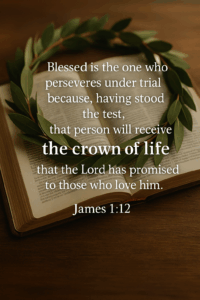
After Charlie Kirk was assassinated, I witnessed what can only be called a spiritual revolution on TikTok. Between posts and comments, I saw hundreds of people who hadn’t even had God on their radar suddenly coming to Jesus.
Something supernatural was happening – still is.
I’ve tried to support and comment on these posts as much as I could, and I’ve prayed. Oh, how I’ve prayed. I’ve been concerned for these newborn Christians because those are ones the devil so likes to attack, to draw into deception.
At some point last month, it seemed like God was asking me, “So how are you going to help them?”
Um…
I’ve been a lurker on the clock app for years. Well, not really a lurker, because as I said I comment and support. I’ve come to appreciate a great many of these creators. But becoming one of them – putting myself out there and making TikToks – was another thing entirely.
I couldn’t conceive of it. Oh, I could in theory like the idea, but when it came to seriously considering following through and doing it… That was a different story. Besides, God hadn’t come out and told me to start creating; He’d just asked how I was going to help.
Then it happened. Suddenly my FYP was filled with creators talking about creating. One explained that you don’t always have to do videos; you can post text and photos too. So I did one – a picture of my book with a brief explanation – and felt pretty good about it. So I did another. And another.
Don’t get too excited: As of right now I’ve only done five TikTok posts and about as many stories.
If you read yesterday’s article, When God Grows Your Faith, you know God has asked me to do some things lately that seemed impossible. This was one of them. He eventually did ask me to start creating on TikTok. For real.
So for real, if you’re interested, you can find me @tmcardwell. I post as Tammy M. Cardwell Author.
But back to my story. God was merciful on this one, leading me into this new thing gently and not giving me my assignment until I was at least relatively comfortable. But there is an assignment, and I am working on it.
I’ve ordered my light, and I’m waiting for my video expert friend to recommend the right mic for my budget. He won’t be able to come help me stage for these videos until after the first of the year, I don’t think, but once I have the tools and know how to use them, I’ll start working with what I’ve got.
In the meantime, I’m working on ideas.
Like I said yesterday, the Christian life is all about walking by faith. It’s trusting that when God tells you to do something He’s already got the road mapped out in front of you. All you have to do is listen and, as Isaiah 30:21 tells us:
“You will hear a word spoken behind you, saying,
‘This is the correct way, walk in it,’ whether you
are heading to the right or the left.”
Random Note: I can never read those words without flashing back to Gandalf with his hand on Frodo’s shoulder, telling him which way to go.
Each step may seem uncertain, but with each step I take I see God proving Himself faithful. He’s turning what once felt impossible into “done.”
Celebrating Jesus!
Tammy C






